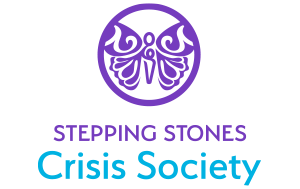What is Abuse?
Domestic violence (domestic abuse or relationship abuse) is a pattern of behaviors used by one partner to maintain power and control over another partner in a relationship. Forms of abuse include verbal/emotional, mental/psychological, physical, sexual, financial, and spiritual. If you or someone you know is experiencing abuse, or needs help in any way, please contact us for assistance. We are here for whenever you need us.
Common warning signs of abuse
- If he/she tries to go too fast, too soon (quick involvement)
- Pressure for sex/intimacy and/or other personal information
- If he/she shows intense unwarranted jealousy or possessiveness
- Controls the relationship and decisions in the relationship
- If he/she uses critical or derogatory language towards your family and friends
- History of abusing partners or pattern of using derogatory remarks about past partners
- If he/she tries to isolate you from friends, family or outside activities
- If he/she checks up on your every move and/or engages in interrogation
- If he/she has a history or currently mistreats children and/or pets
- Sudden changes in self-esteem, social confidence, or major personality characteristics.
- Externally limiting access to finances or transportation
- Covering bruising with non-seasonal clothing or accessories
- Repetitive injuries, often accompanied by excuses about clumsiness or “accidents”
- Fear or undue anxiety to please someone
Addressing Abuse Head On
Helping Yourself
-
It is important to remember that there are many types of abuse and it does not need to involve physical actions.
-
Familiarize yourself with the signs of abuse. If you are unsure, please see above for some common signs of abuse or connect with our free 24/7 Helpline to discuss your relationship and gain valuable resources and information.
-
Below you will find some key points to keep in mind if you decide you are ready to leave your relationship:
-
Make sure you and your children are safe
-
Know that you are not responsible for the abuse. No one deserves to be abused.
-
Understand that abuse and violence will likely continue without intervention.
-
Tell someone you trust about the abuse. Keeping abuse secret gives it more power.
-
Empower yourself with knowledge and information about abuse. Please feel free to connect with our 24/7 Helpline for more information, as well as to discuss safe options for leaving your relationship. Our 24/7 Helpline can provide information, referrals, and resources.
-
Complete a safety plan. Safety plans can include:
-
Having a phone accessible with important numbers for you and your children.
-
Putting together a bag of important items that you would need should you choose to leave your residence. For example: personal identification, copies of relevant documentation (birth certificates, social insurance cards, healthcare cards, financial information, etc.), and necessary medications.
-
-
Helping Someone Else
-
It is important to recognize and understand the signs of abuse. If you are unsure, please see above for some common signs of abuse. Please also feel free to contact our 24/7 Helpline to discuss the common signs of abuse.
-
The second step involves listening to the individual in the potentially abusive relationship. Depending on what their needs are, you can assist with connecting them to our 24/7 Helpline, our Emergency Residential Shelter, or our Community Support Program.







